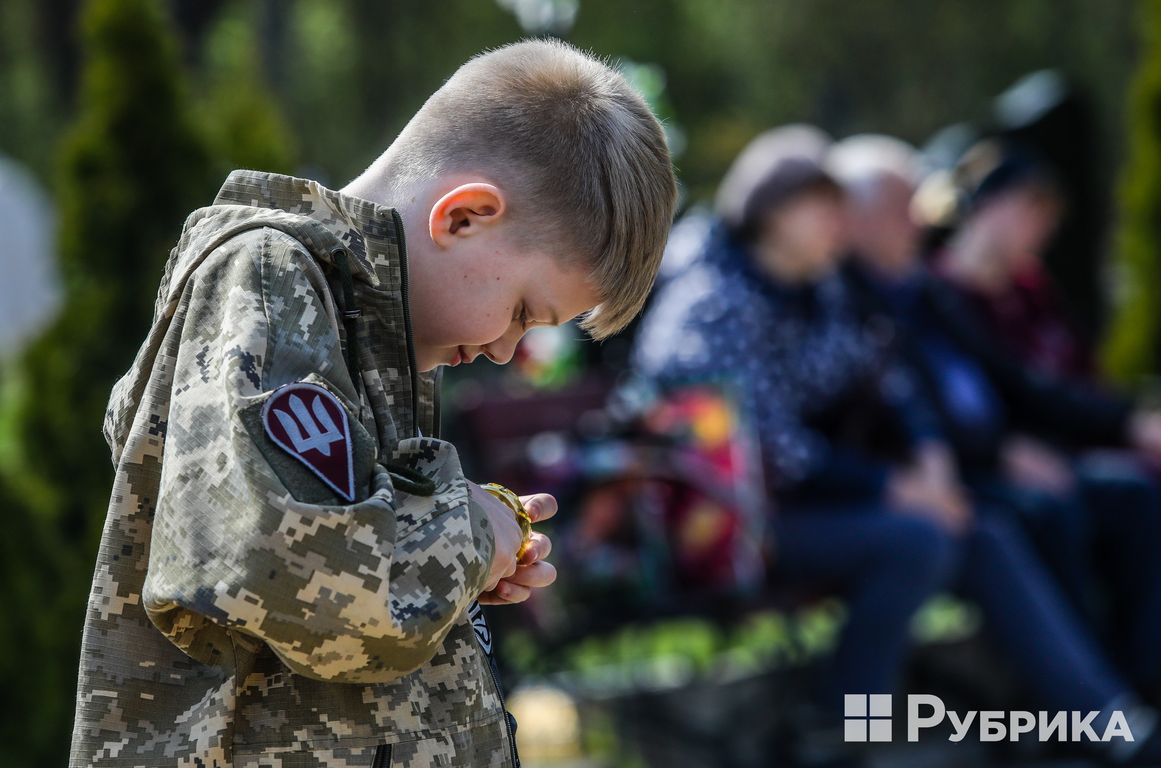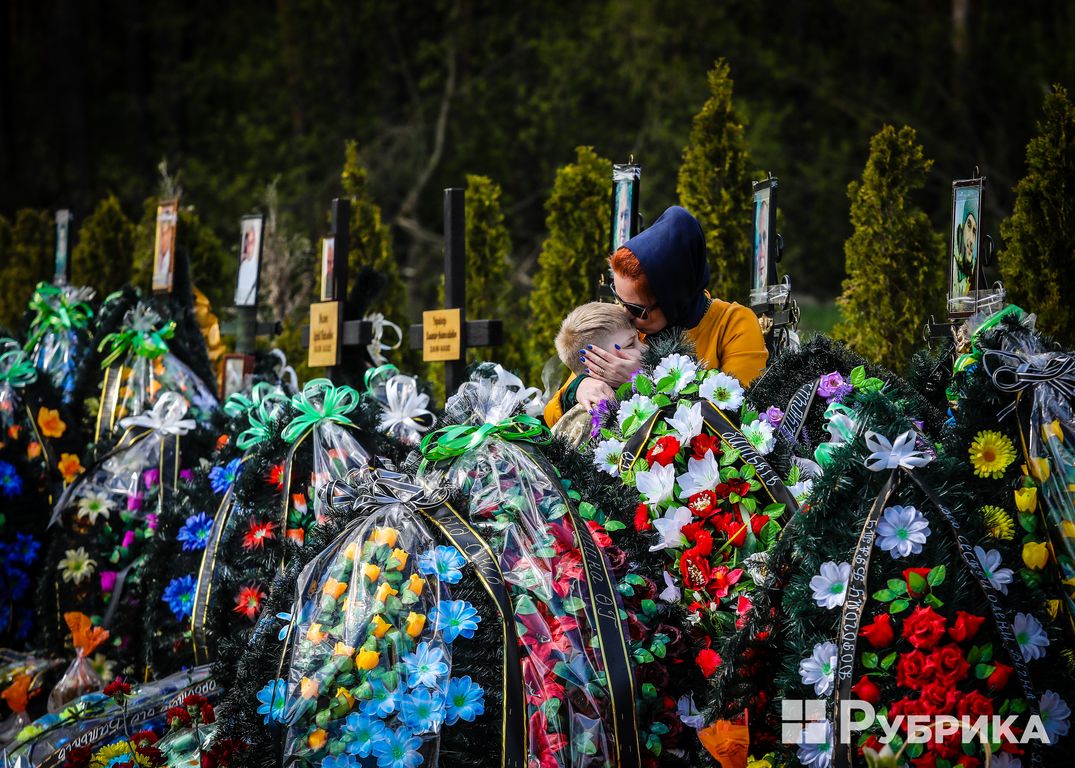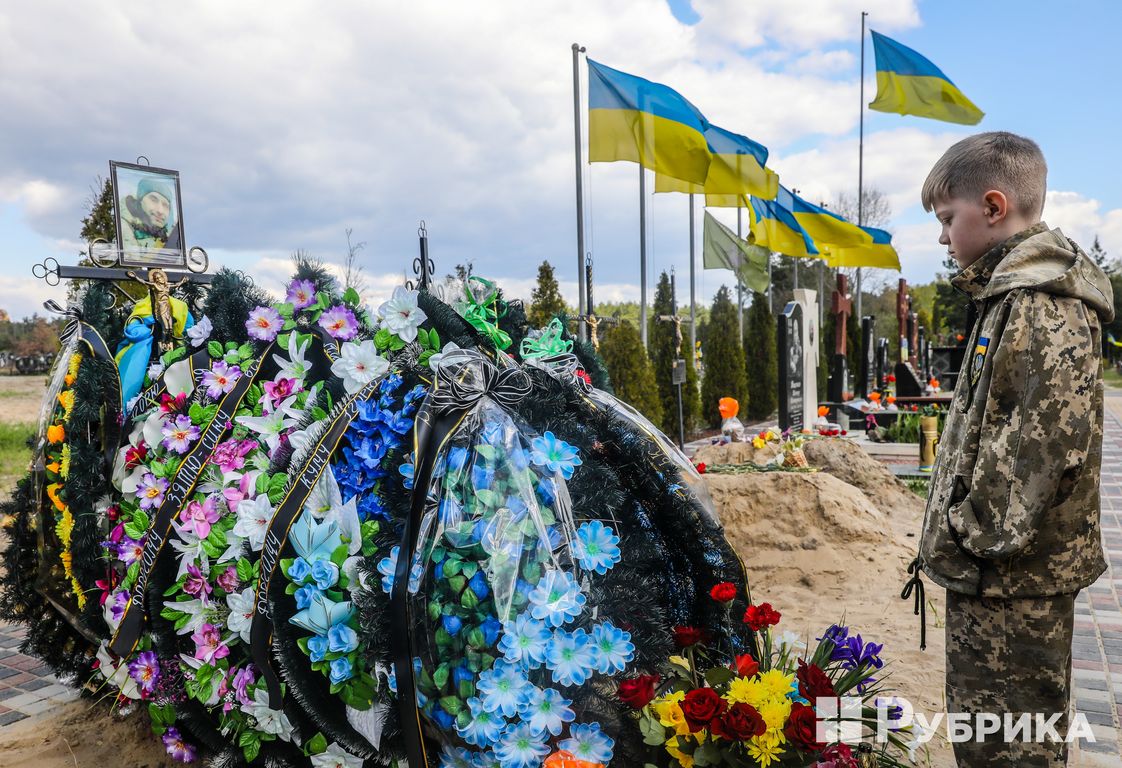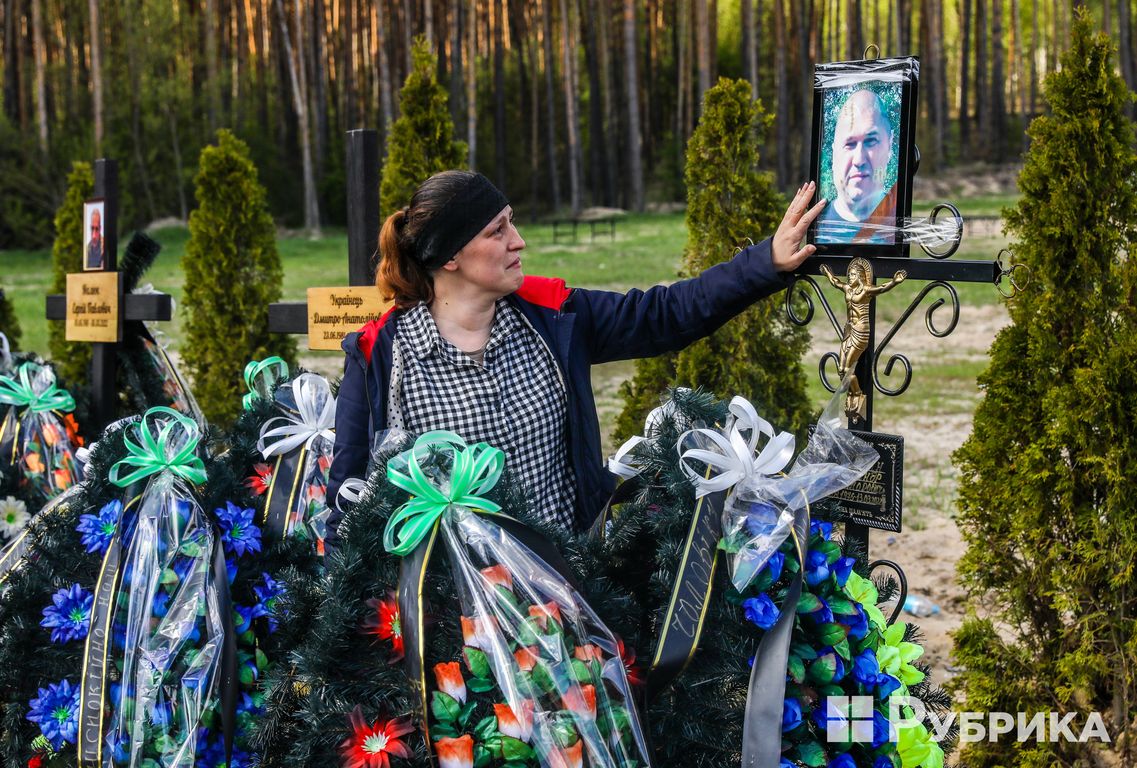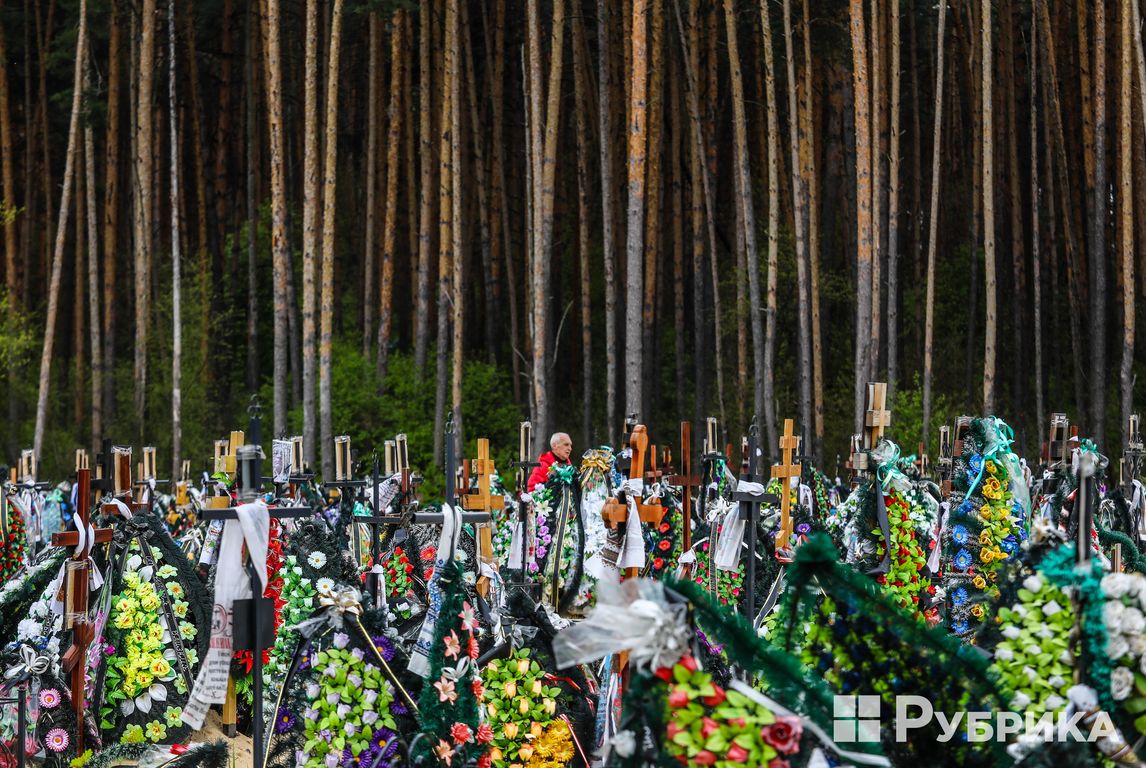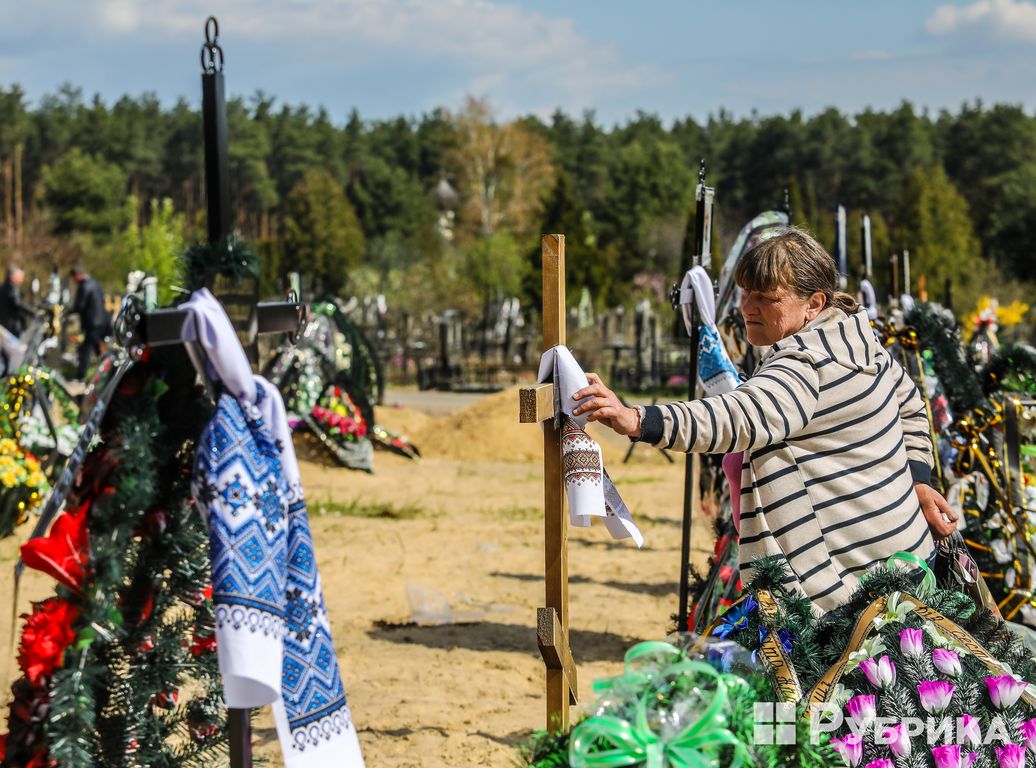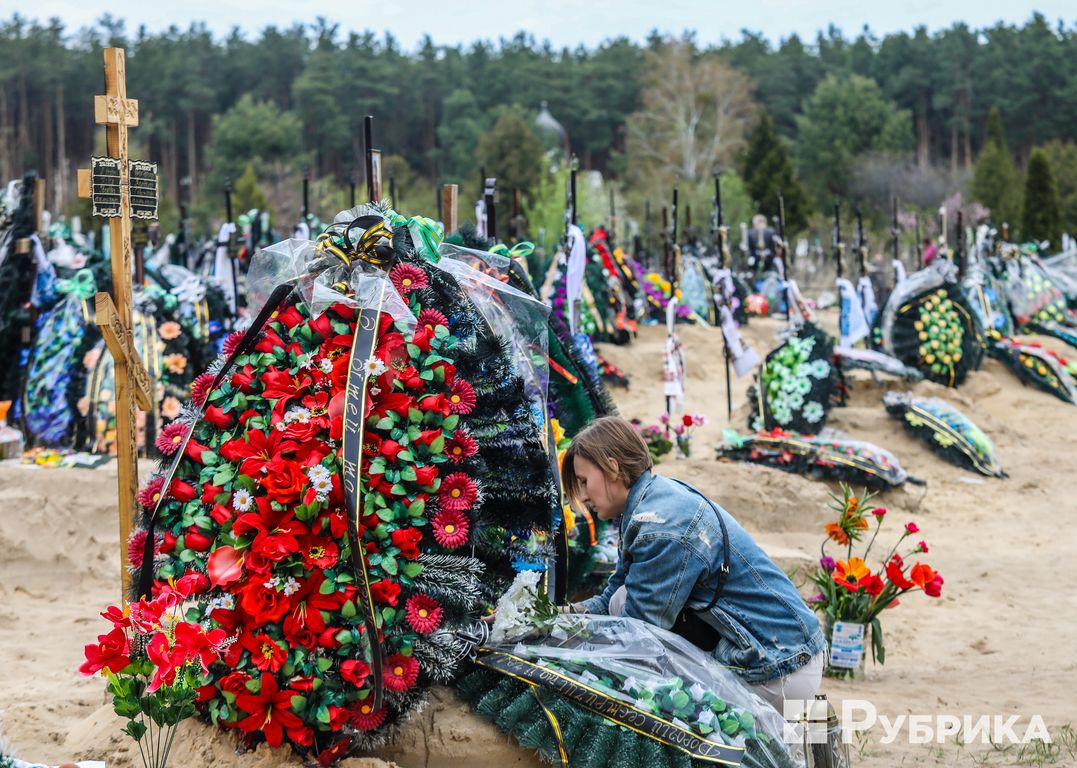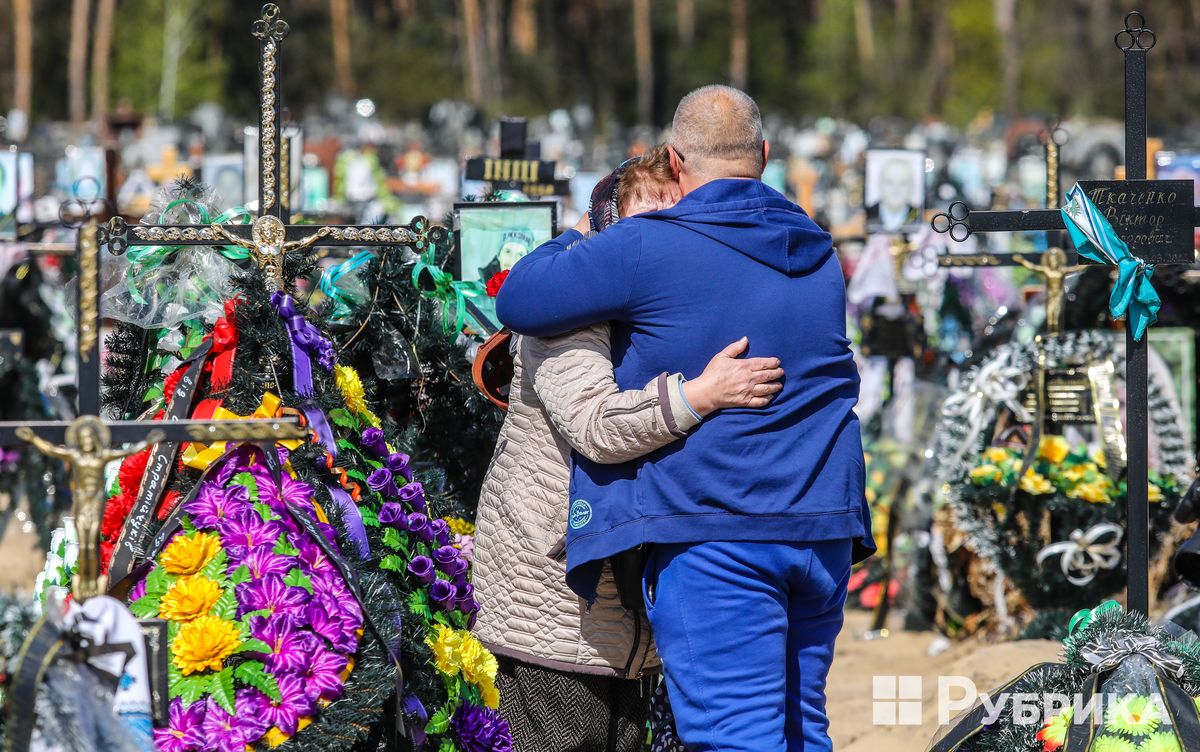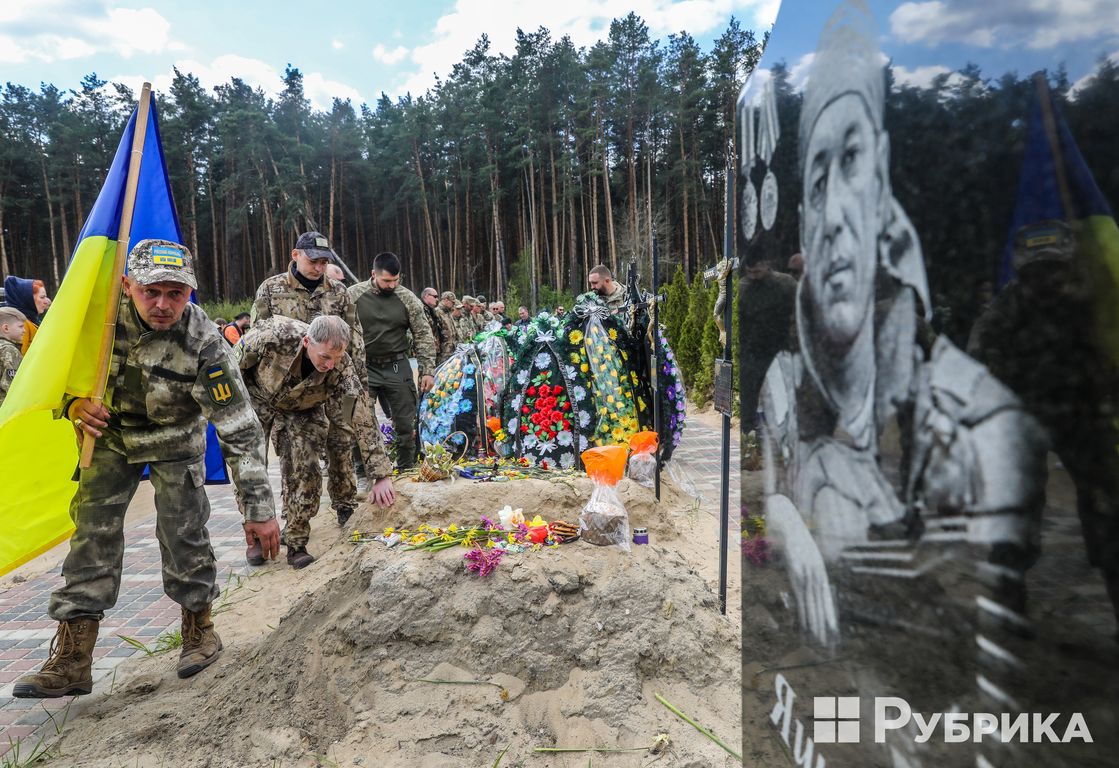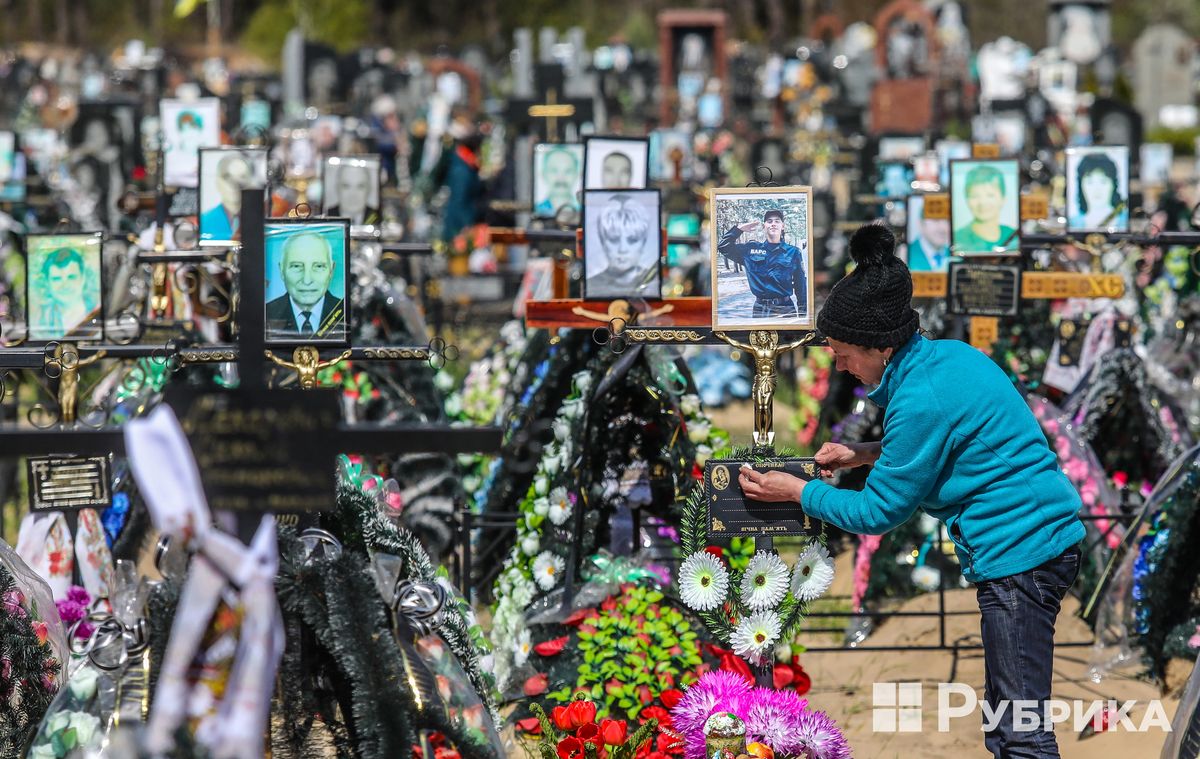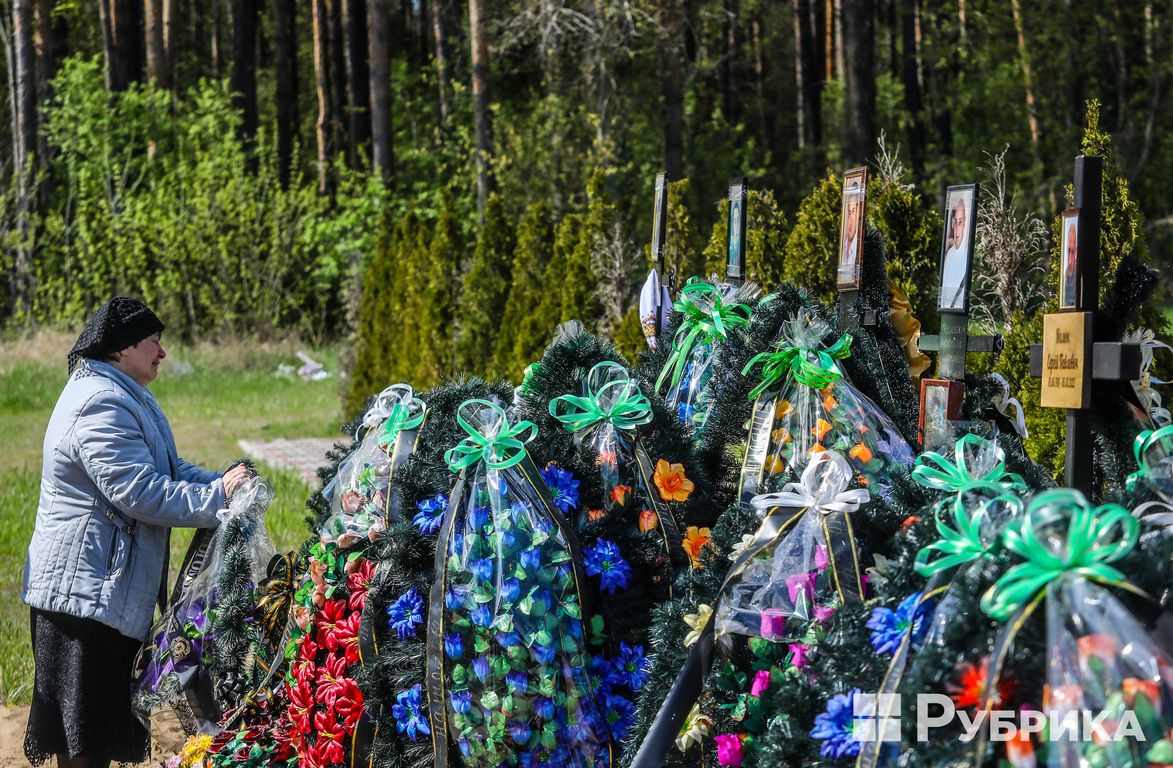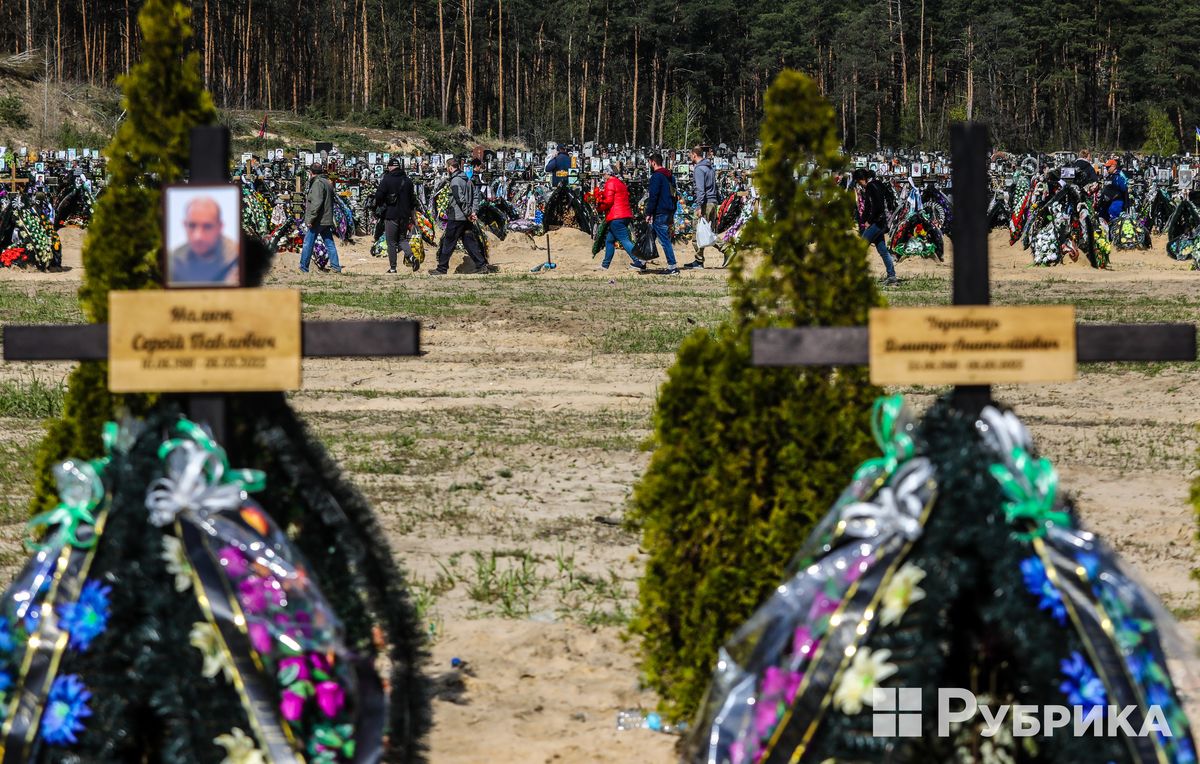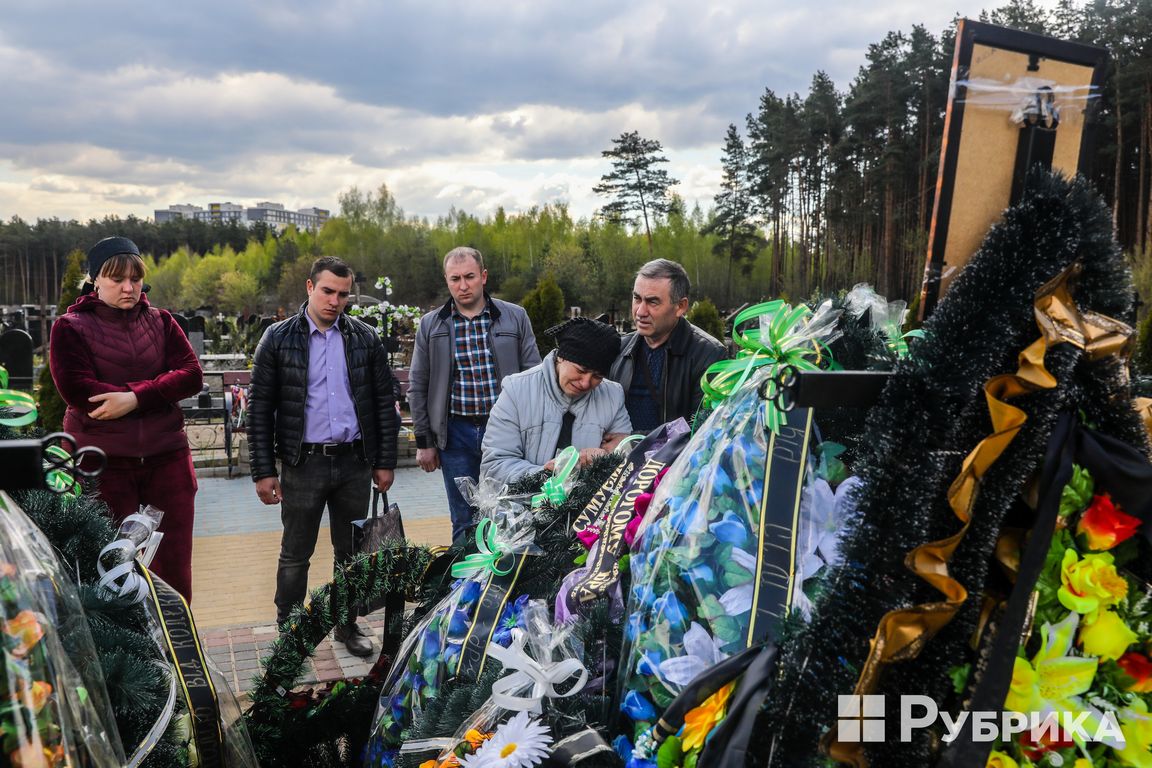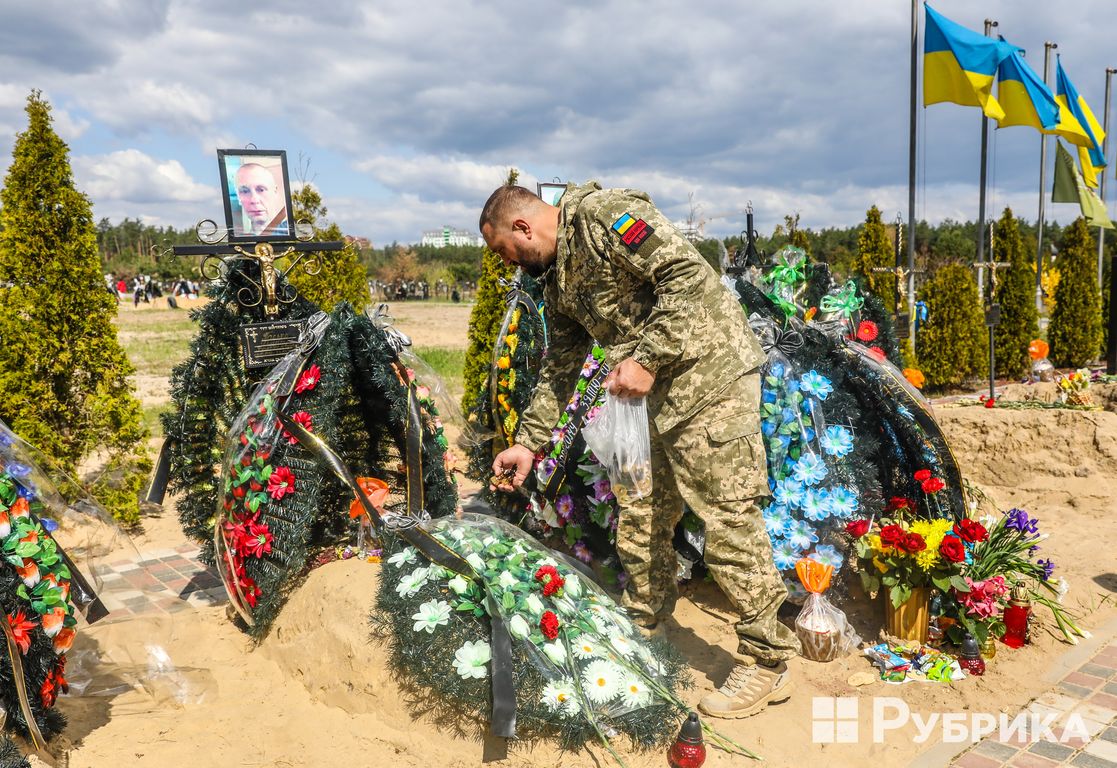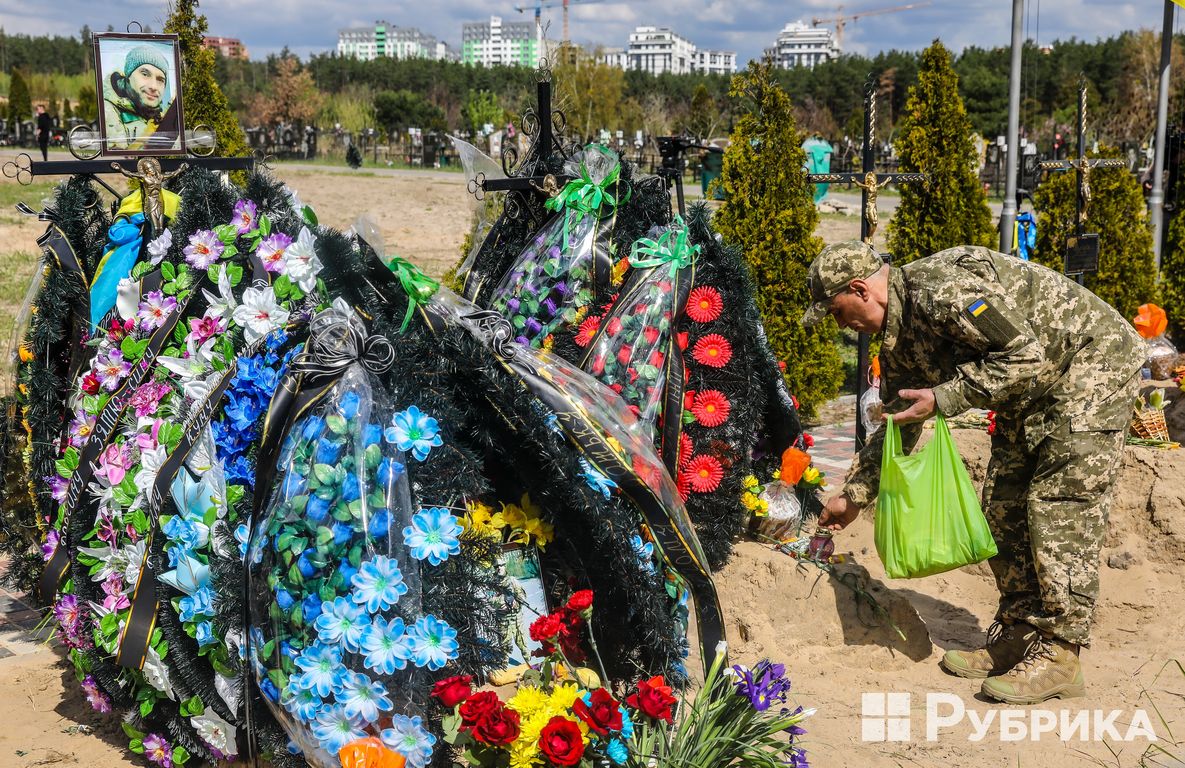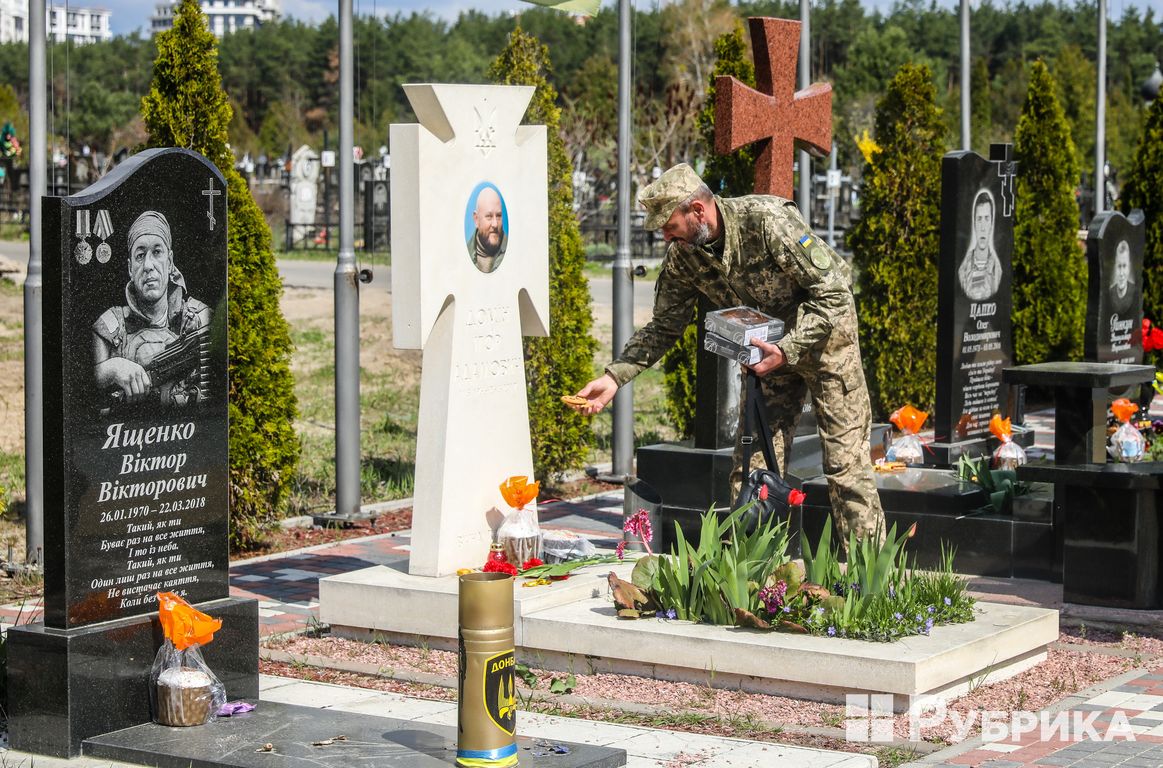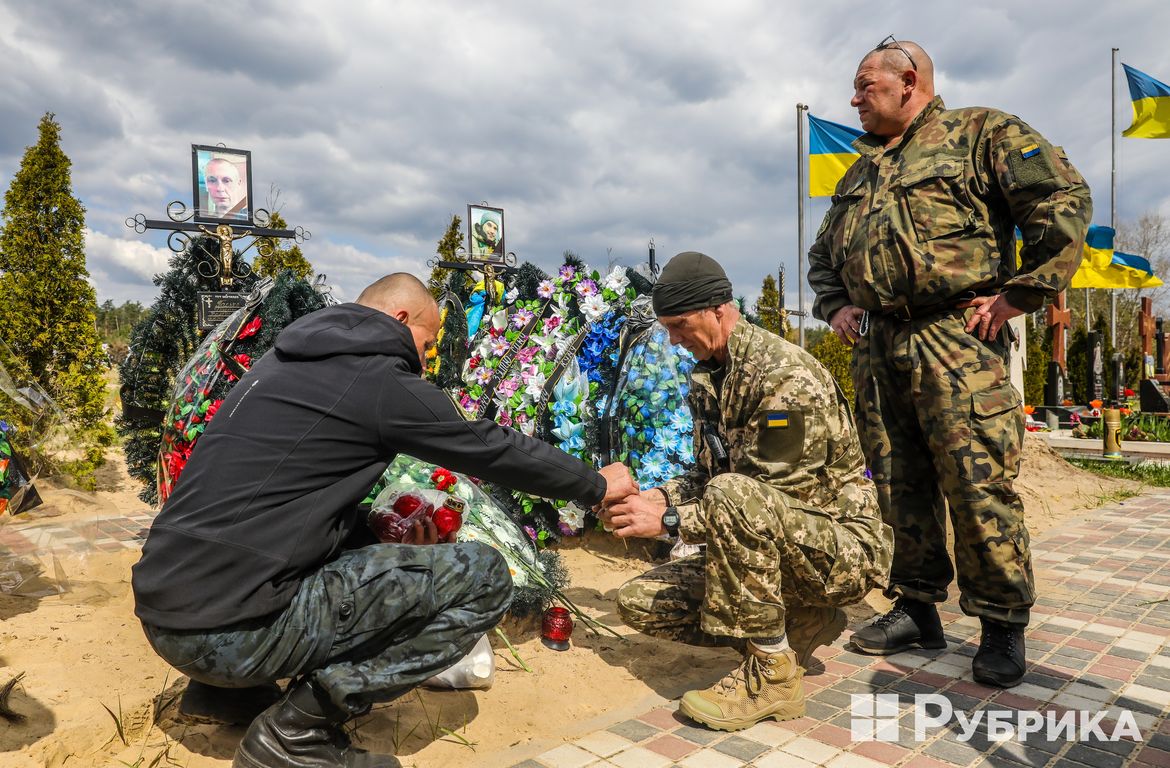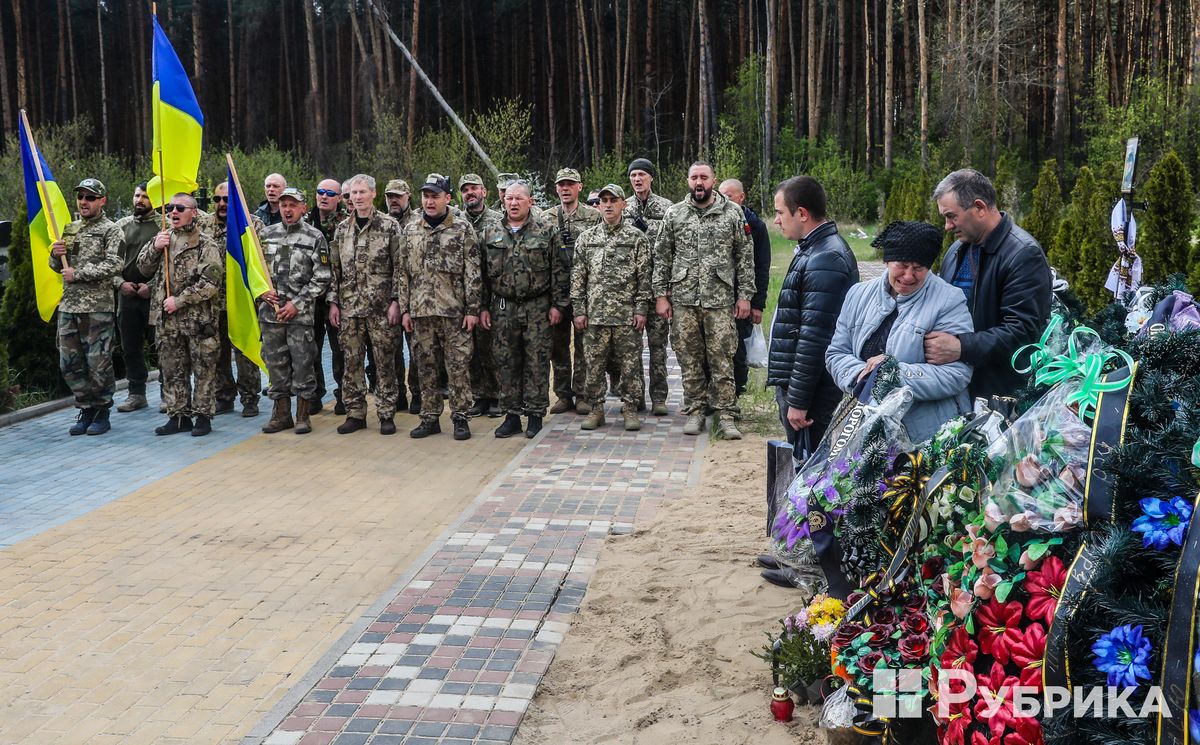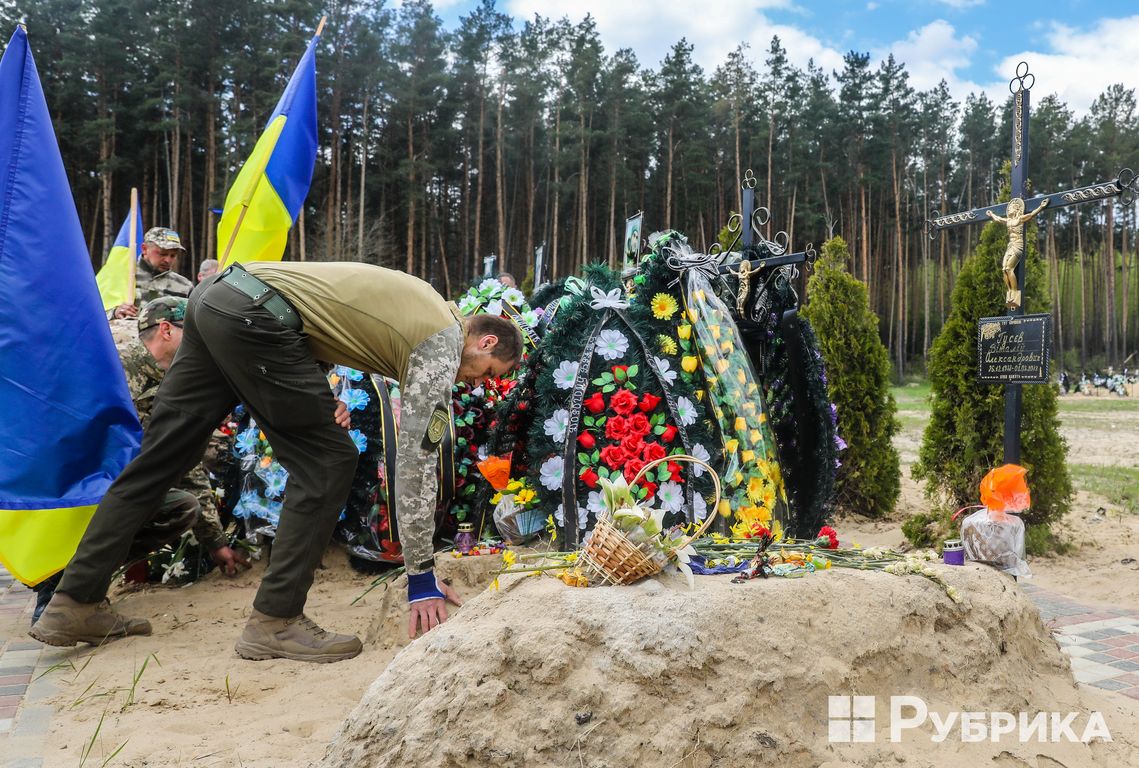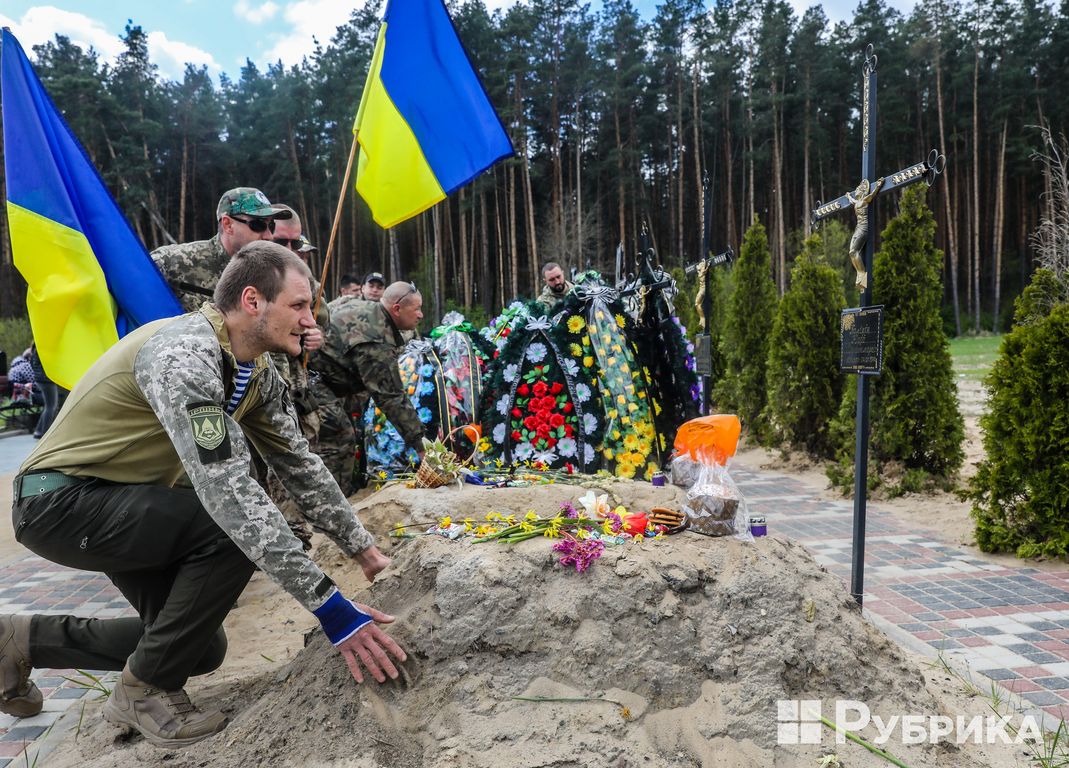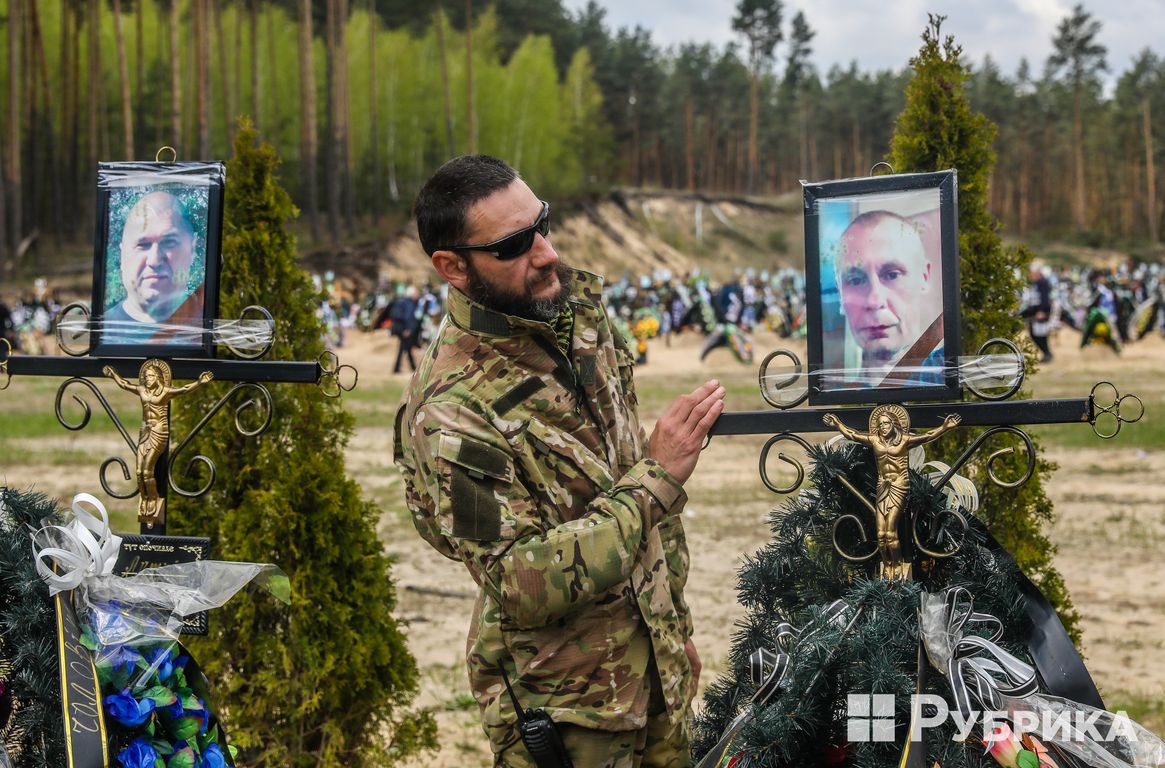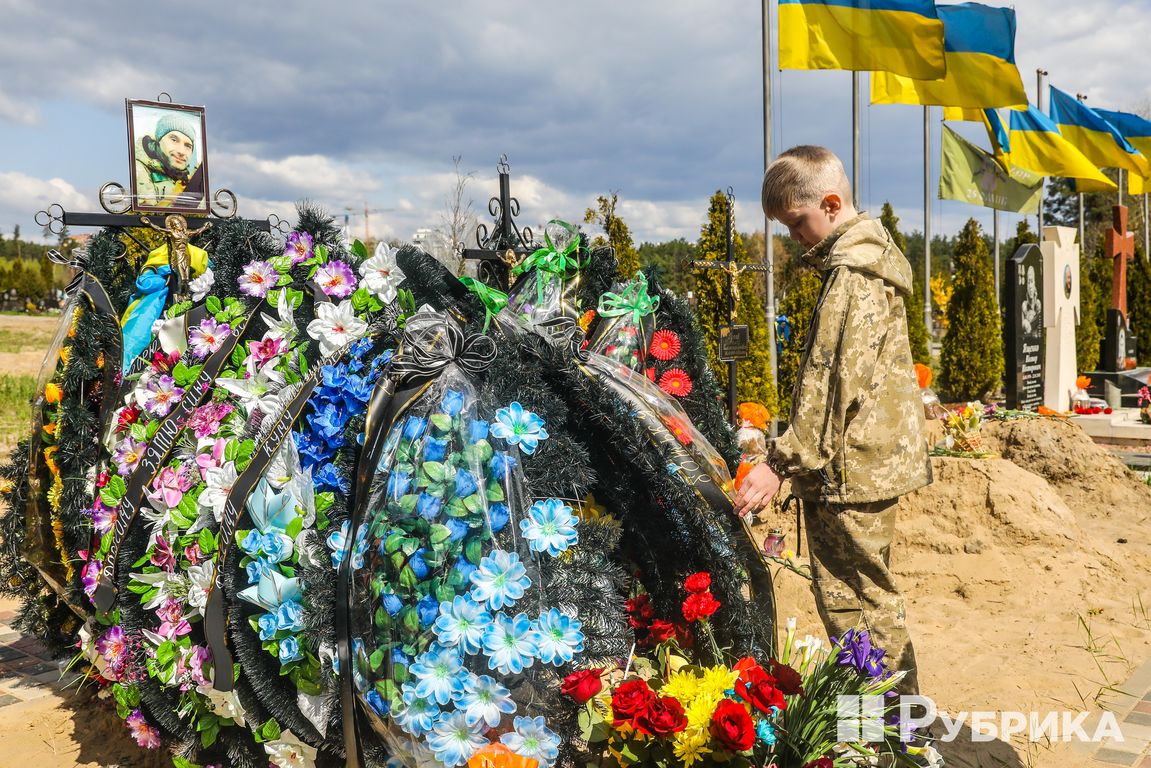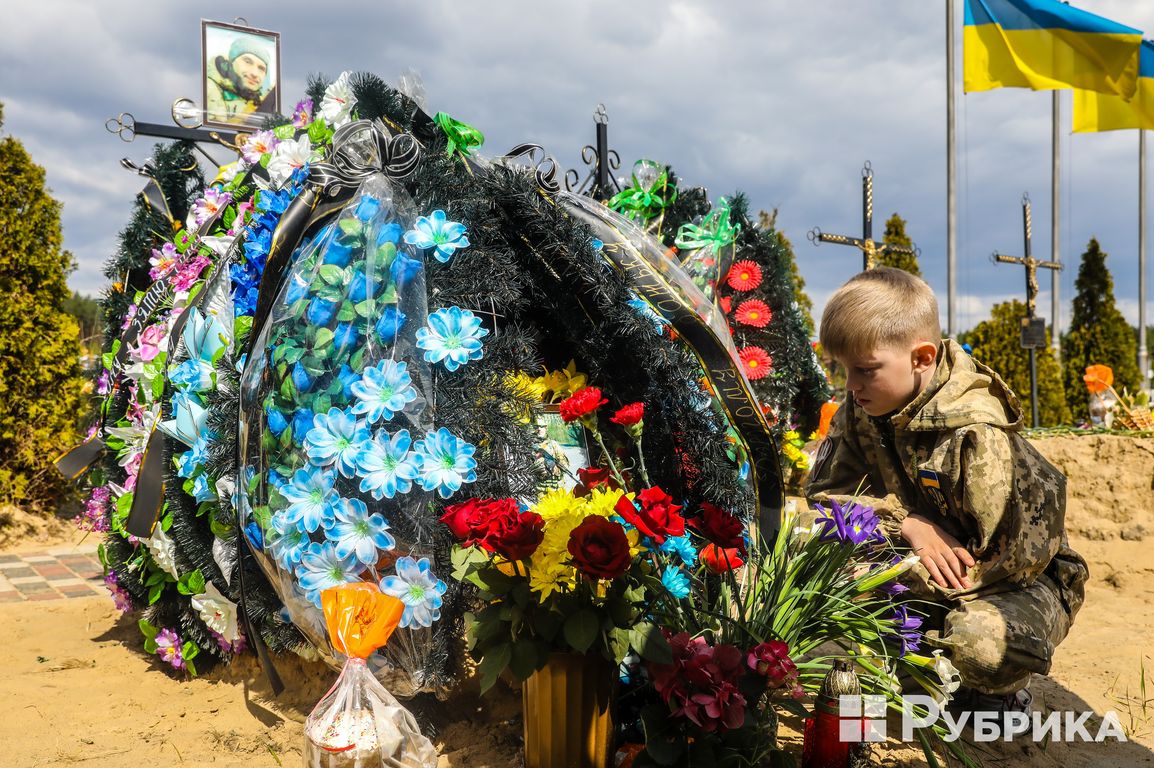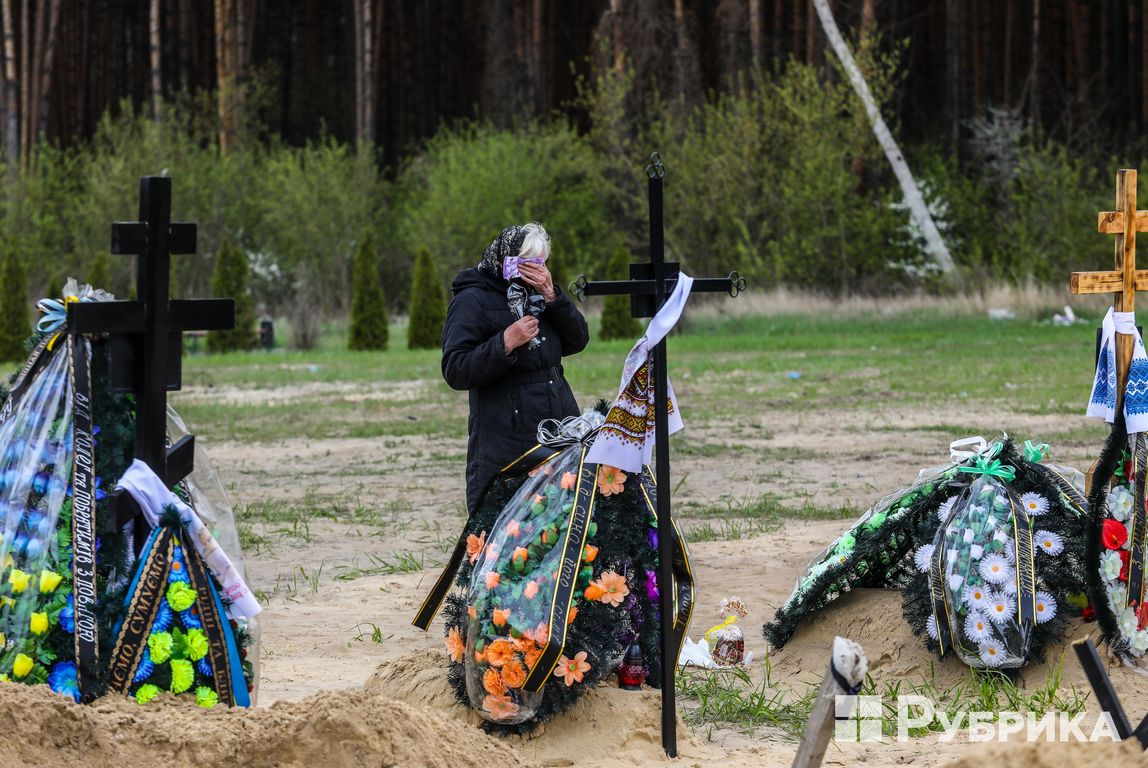
Photo: Rubryka
It is Sunday, May 1. According to church canons, it is Memorial Day, the day of remembrance for deceased relatives – the ninth day after Easter, i.e., Tuesday. However, the cities have long been commemorating relatives on Sunday.
Radovnytsia is the traditional name for this day in Kyiv and Chernihiv regions. These areas were severely affected by the Russian invasion. Hundreds of new graves appeared in cemeteries in towns and villages. On that day, Rubryka went to Irpin, the city of heroes who held the defense and did not allow the enemy to reach Kyiv.
The cemetery in Irpin is located on the city's outskirts, among the pine forest, closest to Kyiv. The new part stands out. It is a place where people have been buried in recent years. It is also a burial place of the Fallen Defenders of Ukraine. There have been many more graves here in recent weeks – now, those who defended their hometown are resting here. Many flowers are on the graves – brought here by comrades-in-arms and relatives.
"If everyone leaves, how will we live here?"
Next to one of the graves stands a woman with a young son. The boy is wearing a military uniform. His name is Savelii, and he is ten years old. His father is buried here. Today is the forty-first day after his death.
"I am Krotkikh Alla. I am almost 42 years old. This is my son, Savelii; he is ten years old. My eldest son Vladyslav is 21 years old.
My husband, Krotkikh Ihor, together with our eldest son Vladyslav and his brother Yuriy, defended our hometown of Irpin from day one. We were all born here and always lived here."
Alla remembers March 21, when a fierce battle took place at the entry to Irpin.
"It is the 11th line, near the military hospital. They upheld the defense there for five days, waited for help, stood bravely, and defended our city. And then my husband was hit; my son, who was also wounded, tried to save him. But his father died while he held him. And then my husband's brother, who was also injured, started rescuing my son. They waited a long time for help, lost a lot of blood, and were hospitalized in critical condition. No one knew if they would live.
Ihor himself went to the territorial defense of the Armed Forces of Ukraine. He was not in the military before.
It was their choice. I tried to talk my son out of it. I thought it was too early for him, that he was too young, but he said that this is our city, we live here, and if everyone leaves, how will we live here?
Yesterday it was forty days without my husband and forty days that we all have been staying in Shalimov's hospital."
"When I come here, I feel lighter"
Next to it is another grave. A woman stands next to her daughter, holding her boyfriend's hand.
"My husband was the person I wanted to live for. No one could say anything bad about him. He was always sensitive, and he helped everyone.
Coming to the graves on a memorial day is a tradition, but my daughter and I generally come to the grave every two or three days. I feel better then. When I come here, I feel lighter.
We laughed so much; we had a joke that we would die on the same day. I'll be honest – that's what happened. He is in heaven, and I stayed here. When he died, I felt it. I knew something had happened. I got a call in the morning, and they told me he was gone. These were the worst moments of my life.
Before the war, my husband worked in a taxi and drove people. He liked this job, and he loved to communicate with people. We all lived happy lives until the war began.
He died during the mortar shelling. Three of them died, and the fourth was wounded; now, he is in the Lviv hospital. Here lies Dmytro Pasko (points to the grave nearby). The third one, Serhiy, is buried in his homeland in the Zhytomyr region. They were under shelling for sixteen hours with mines, artillery, and Grads coming at them, destroying our neighborhood where we lived.
Their defensive post was right there; it was the point of Irpin where the Russians were stopped. They laid down their lives to prevent the Russians from reaching Kyiv.
We have five children, three from his first marriage and two from my first. The most interesting thing is that Sasha and I did not have children together, but we have a grandson together. Sasha's eldest daughter married my nephew.
Until March 5, we stayed in Irpin, and then Sasha quarreled a lot, and insisted that we leave. He said this is not our war, that men should be at war, and women and children should not be here. And before that, until March 5, I helped prepare food for our defenders.
Many of our local guys came out to defend the city, to keep Russians from passing and reaching Kyiv. Our husband was in the company tactical group for the volunteer construction battalion of the Armed Forces. He died near the 'Giraffe,' a shopping mall.
After the first battle, the guys wrote "Welcome to HELL" so that all Russians would know that hell is here for them, no one is waiting for them here.
We left by evacuation train; there were twelve of us in the compartment. We put four children on the top shelves, and eight adults took turns sitting. The train stopped very often; there were alarms; the lights were turned off. We left at about ten AM and arrived in Ivano-Frankivsk at about five AM. It was impossible to go to the toilet because people were everywhere, with children sitting on the carriage floor. When we were standing on the platform in Irpin, they were shelling the railway station, although the evacuation train was agreed. It was supposed to be a green corridor, but they fired."
And they died on the same day
We are in a different part of the cemetery. Here, the civilians of the city are buried. I'm talking to Daria. She is tidying up the grave of her parents, Myakushko Nadiya, 69, and Cherednichenko Volodymyr, 75. They died on the same day near their home.
"According to a neighbor, on March 24, the Russians were driving in armored vehicles and started firing at the house, and a big fire broke out. My father was 75 years old; he moved very poorly on a walker. My mother took him out, and they were near the garage. Their house was in flames. The fire began to spread, and my father went onto the road to escape. There the Russians shot him. As to my mother, it is unknown whether she was shot or killed in the explosion. It was all in one day. On the 26th, I knew that my father had died because my father was lying right on the road, but the neighbor did not see my mother's body. We hoped that my mother was alive; we were looking for her. On March 28, volunteers could get to the city and said that she had been killed."
Daria starts crying. All these conversations are difficult. During some, I almost cried with my family. It is difficult to resist, even though I saw a lot of grief during the war. One of my close relatives also died.
But such conversations are crucial. People, at first, are not always willing to talk, but during the conversation, they remember a lot of details, remember something important. It is essential to write these stories down. It is vital to record them. Not just to punish the enemy. But also because now it is our history. And we must remember it from now on and forever.

What does a residential building in Kyiv look like after the latest shelling by russians: Rubryka's photo report

"Не знаю, що гірше: померти, але не бачити наслідків, чи вижити". Історія дівчини, яка повернулася в Україну після евакуації за кордон

The one who got out of Mariupol: mobile crematoria, remains of bodies on streets, lack of water, food and opportunities to keep warm. Life in occupied city and escape from it
Newsletter
Digest of the most interesting news: just about the main thing




